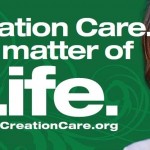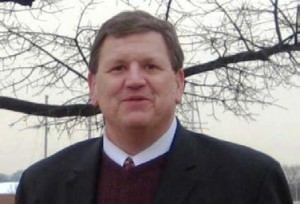by Eugene Peterson
But when we return to such natural settings in order to recover such feelings, what ordinarily happens is that we become more attentive to our feelings than to God. We have crossed a line. We are not praying but “using” nature to produce religious feelings. By engaging in the proper rituals and with a little of bit of luck we can manipulate nature for selfish benefit.
This is the origin of the antiprayer called magic. Prayer is willingness practiced before God; magic is willfulness exercised on nature. Magic is the skillful use of natural means to manipulate the supernatural (whether God or devil) in order to bend the natural to respond to my will. The magician is expert in using the lore of herbs, the movements of planets, the incantation of sounds, the concoction of potions, the making of diagrams (all from the realm of nature) in order to impose his or her will on nature. In the days of the psalmists, the religion was Baalism. Today this religion surfaces in one form of technology or another (using nature to orchestrate a lust for feelings, using nature to satisfy a lust for power, and so forth).
The account in 1 King 18, in which the priests of Baal gashed themselves with stones so that their blood flowed, is an attempt to influence the skies by magic. If they could only make the vital, life-carrying liquid from their bodies flow in sufficient quantity, surely the energy-carrying fire from the sky-god Baal would also flow. Elijah, by contrast, does not do anything. In prayer we do not act; God does. In prayer we do not develop a technology that sets the gears and pulleys of miracles in motion; we participate in God’s action: “Not my will but yours.”
The Scene of God’s Action
Psalm 114, meanwhile, holds the focus on prayer, not magic. It deals with the way God is acting with creation as his accomplice. There is nothing here about how we can manipulate nature to shape history to our convenience. The earth is not here for us to use; the earth is the scene of God’s action. In pride we approach nature to use it; in prayer the psalmist directs us to join it in praise and celebration of God’s salvation.
When Israel went forth from Egypt,
the house of Jacob from a people of strange language,
Judah became the sanctuary,
Israel his dominion.
–vv.1-2
The most unobtrusive words in these lines, the pronouns, are the very ones that turn out to be most important: his sanctuary, his dominion, that is, God’s sanctuary, God’s dominion. The formative experience for Israel’s identity, the Exodus, is not arrogantly held up as a nationalist banner behind which the people can march, boasting of their superiority. What is expressed instead is unpretentious submission to God’s gracious rule. Geography (Judah) becomes liturgy (sanctuary) a piece of land in the ancient East becomes an arena in which the divine action is played out. The two ways that we commonly use to locate ourselves in reality (where we are and what we see) are subsumed into things both larger and more intimate: God’s presence and God’s action. History and geography are gathered into worship.
The biblical, praying mind does not reduce place to a matter of geography— mapping and analyzing— nor to a matter of economics— assigning ownership. Rather, it views place in terms of God’s presence and action in our environment. The biblical, praying mind doe not abstract God from nature. Rocks and rivers, whales and elephants are participating elements in salvation. God is not understood by means of nature but nature by means of God. Creation is not pronounced divine and so made to bear more freight than she can hold, so that at one moment, gripped by fearful superstitions, we cower before her; at another, infatuated with mental illusions, we coyly court her. Nor is God reduced to nature so that we can “handle” him, convinced that if we can only learn the right technique we can use him for our purposes.
Something more like a sacrament is realized: the Exodus from Egypt and the entrance into Canaan are the means that God used to make himself known and become present to his people. He did not do this apart from history taking place in specific geography. The land and its scenery are not means that the people use to influence God but the material structure of his action among them. They pray to him, not to a divine stone. They pray to him, not a petrified god.
The difference between a sacrament and an idol (or an amulet, incantation, ritual, or figurine) is that a sacrament is what God uses to give and an idol is what we use to get. The material is involved in either case, but before the sacrament we are willing and before the idol we are willful. Sacraments are, therefore, everyday material (rivers and lambs; water, bread, wine) because God uses whatever is commonly at hand to share himself with us. Idols, in contrast, are exceptional material– precious metals, fashioned into impressive shapes, unusual object like meteorites that will supplement our willfulness and add potency to our aspirations after lordship. When, though, we attend sacramentally to God, he uses our awareness to throw a widening light across the environment that shows Egypt and Palestine (and America) as material places where God acts redemptively.
Eugene H. Petersonis a pastor, scholar, author, and poet. He has written over thirty books, including Gold Medallion Book Award winner The Message: The Bible in Contemporary Language(Navpress Publishing Group, 2002), a contemporary paraphrase of the Bible. This excerpt appeared in The Best Preaching on Earth edited by Stan L. LeQuire and published by Judson Press in collaboration with the Evangelical Environmental Network in 1996. This is the second of a four part series on the theme of Creation in the Psalms.










